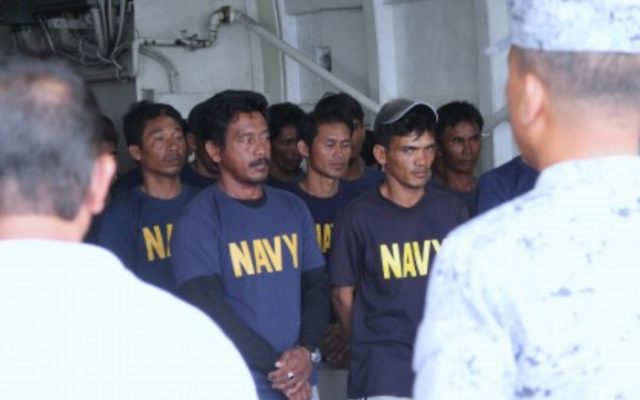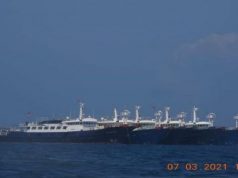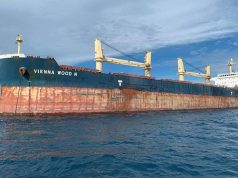Foreign Affairs Secretary Teodoro Locsin Jr. and several lawmakers opposed the proposed joint probe into the ramming incident near Reed (Recto) Bank in the portion of the South China Sea that the Philippines calls the West Philippine Sea. This is despite President Rodrigo Duterte’s openness to the Beijing-backed idea.
What are the reasons critics have in opposing a joint investigation?
It can violate the Philippines’ sea rights
Sens. Francis Drilon and Francis Pangilinan said there is no need for China’s involvement given that the event happened within the country’s exclusive economic zone (EEZ), hence, a clear violation of maritime laws.
“The incident happened within our territory and the facts were clearly established. All that is left for the government to do is to implement and execute our laws. Sadly, our laws were put in the backseat in favor of China,” Drilon said.
The sinking of an anchored GEM-Ver 1 early this June where the lives of 22 Filipino fishermen were put at risk happened near Reed Bank, a seamount or shoal within the Philippines’ 200-nautical mile EEZ.
The Philippines, not China, has rights over the EEZ based on the landmark arbitral tribunal ruling under the United Nations Convention on the Law of the Sea in 2016.
The arbitral decision at The Hague was cited by Pangilinan as the reason why a joint probe with China is wrong.
“It also impacts our territorial claims in the West Philippine Sea. It was already ruled as ours at The Hague in 2016. It weakens our position and can be raised as an act of abandonment of our claim,” the senator said.
Sen. Panfilo Lacson likewise shared the opinion.
The government must seriously consider the issue of sovereignty in the conduct of a joint investigation with China. The 2016 Hague ruling expressly states that Recto Bank is part of the Philippines’ 200-nautical mile EEZ. It is ours. Are we waiving ownership of Recto Bank?
— PING LACSON (@iampinglacson) June 23, 2019
Locsin, the lone Cabinet official so far to dissent, informed the public as response to a tweet that the Philippines and China will conduct separate investigations on the incident.
In another tweet, the top diplomat explained why doing it separately is fairer.
“A joint investigation trenches on each other’s sovereignty. So separate investigations by each side; differences discussed by the two sides. If both sides satisfied, each side issues its conclusions hopefully the same. That fosters better bilateral relations,” Locsin said.
Detained Sen. Leila de Lima described such initiative “outright abandonment” of the country’s sovereignty.
“Recto Bank is within our EEZ and thus within the ambit of the Philippine Fisheries Code. A joint investigation is also an abandonment of our sovereignty because it amounts to a refusal to exercise our exclusive authority over our fisheries resources in Recto Bank,” she said on Facebook.
China has poor track record in being fair
Sen. Risa Hontiveros expressed her distrust of the Chinese government, concurring with Locsin.
Hontiveros likened this to the term “lutong macaw,” which means rigged or cheated.
“Any joint probe with an evasive Chinese government would be, quite literally, lutong macaw,” she said.
“If China intends only to whitewash the incident & is unwilling to bring her erring citizens to justice for their acts, then any joint probe would be an exercise in futility,” she added.
Any joint probe with an evasive Chinese government would be, quite literally, lutong makaw.
If China intends only to whitewash the incident & is unwilling to bring her erring citizens to justice for their acts, then any joint probe would be an exercise in futility.
— risa hontiveros (@risahontiveros) June 22, 2019
Meanwhile, former Foreign Affairs Secretary Albert del Rosario explained in an interview why China under Xi Jinping should not be trusted in the first place.
“Mr. Xi Jinping, in a conversation with the President of the United States said they are no longer militarizing, and as they were talking, they were militarizing on the ground. And there was another leader who was told by Mr. Xi Jinping that there would be no artificial island building, and as he was saying that, there was island building,” Del Rosario told CNN’s “The Source.”
Supreme Court Senior Associate Justice Antonio Carpio, another outspoken official on issues of sovereignty and jurisdiction in the South China Sea, previously argued that the culprit could be a vessel of China’s maritime militia.
“China’s maritime militia vessels have reinforced steel hulls purposely for ramming fishing vessels of other coastal states. No other coastal state has fishing vessels purposely designed for ramming other fishing vessels,” Carpio said.










